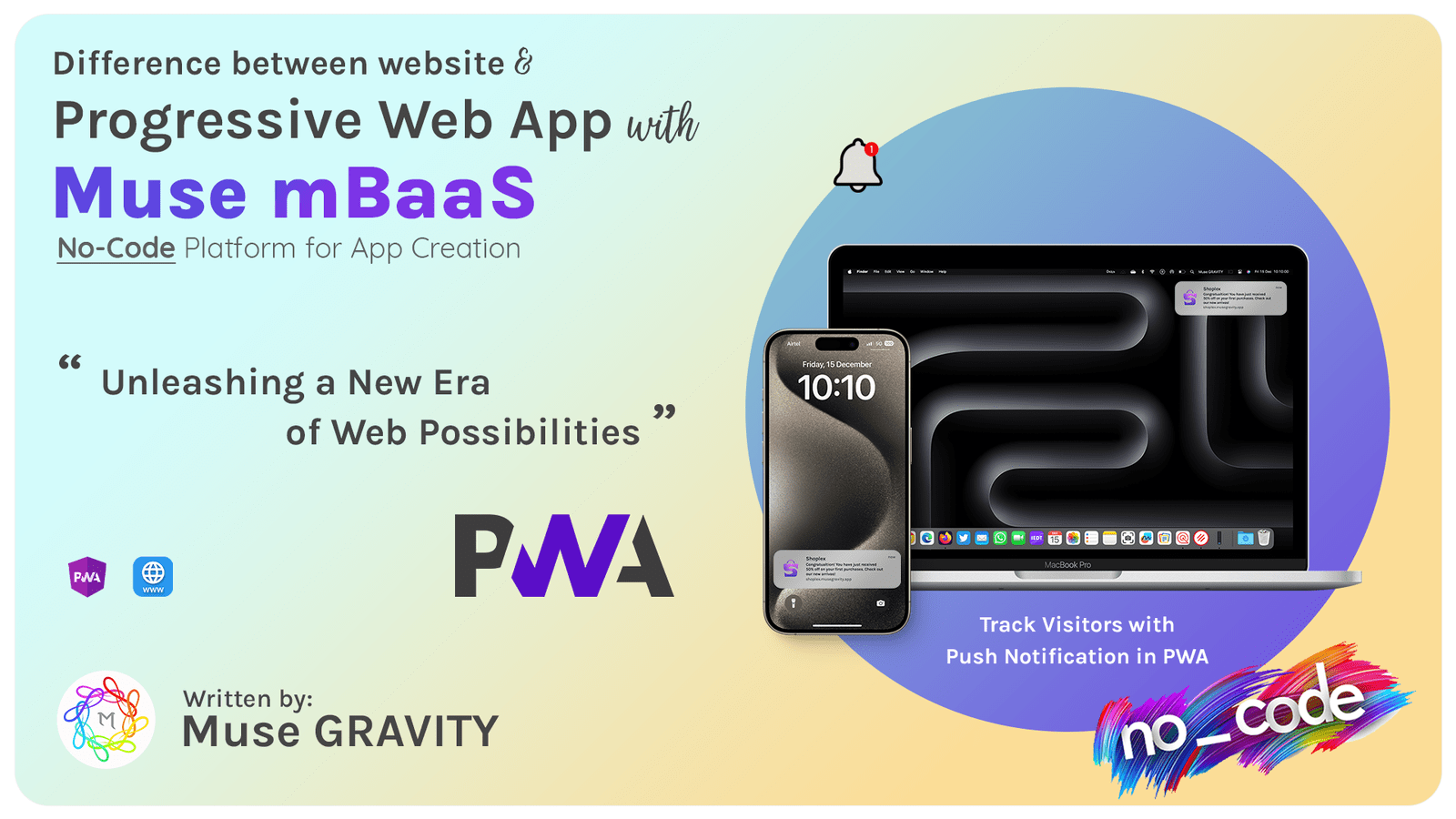
In today's digital landscape, understanding the distinction between Progressive Web Apps (PWAs) and traditional websites is crucial. PWAs blend the best web and mobile app features, offering versatility and user engagement, while websites remain the backbone of online content sharing. This guide delves into their differences, examining user experience, performance, and the impact on digital marketing. We'll explore why businesses are increasingly turning to PWAs for a more dynamic online presence, and when a traditional website might be the better choice.
What is a Progressive Web App (PWA)?
Imagine a PWA as a superhero version of a website. It looks and feels like an app you might download from the App Store or Google Play but lives on the web. This means you can use it on any device, just like a website, but it's faster and can even work offline. PWAs are perfect for giving your users a top-notch experience without the hassle of downloading an app. To dive deeper into the world of easy app creation, don't miss our blog on Crafting Your Dream App in 2024 with No Code.
What is a Website?
Websites are like the familiar streets of the internet. They're collections of pages under one address that you visit with a browser like Chrome or Safari. A special kind of website, called a responsive website, automatically changes its layout to look good on your phone, tablet, or computer. Websites are the go-to for sharing information and selling products online. To learn about creating a standout digital storefront, check out our insights on The Value of Creating Your Unique Business App.
Comparison of PWA and Website
When exploring the digital realm, understanding the key differences between Progressive Web Apps (PWAs) and traditional websites is essential. Here's a detailed comparison:
User Experience :
- PWAs: They are designed to offer an app-like experience. This means when you use a PWA, it feels like you're using a native app downloaded from an app store. Features like smooth scrolling, gesture-based navigation, and an immersive full-screen mode are standard.
- Websites: Traditional websites may not provide such a seamless experience, especially on mobile devices. They are generally more suited for desktop browsing, and while the responsive design has improved mobile experiences, they still fall short of the cohesive feel that PWAs offer.
Speed and Performance :
- PWAs: Known for their speed, PWAs store data in a cache, allowing for quick loading of content and images. This caching means that once a PWA is loaded, much of its content can be viewed without an internet connection, leading to faster access and interaction.
- Websites: Regular websites might take longer to load, especially if they have heavy content. They need to retrieve data from servers each time, which can slow down the user experience, particularly on slower internet connections.
Offline Access :
- PWAs: One of the standout features of PWAs is their ability to work offline or with limited network connectivity. By caching key resources, PWAs can continue to function and provide content to users, even when the internet is unavailable.
- Websites: In contrast, traditional websites require an active internet connection. If you lose connectivity, the website won't load, limiting accessibility in areas with poor or no internet.
Development and Maintenance :
- PWAs: Developing a PWA can be more efficient and cost-effective. Since they are built using web technologies (HTML, CSS, JavaScript), a single PWA can operate across multiple platforms and devices. This unified approach simplifies maintenance and updates.
- Websites: Building and maintaining a website, especially one that is responsive across various devices, can be complex and might require more resources. Different versions or adaptations for mobile and desktop can add to the workload and expenses.
Engagement and Reach :
- PWAs: They can be installed on a user's home screen, send push notifications, and re-engage users just like native apps. This level of engagement is valuable for businesses looking to build a strong, ongoing relationship with their audience.
- Websites: While websites can use tools like email subscriptions for engagement, they need more direct and persistent engagement tools that PWAs provide, such as home screen presence and push notifications.
SEO and Discoverability :
- PWAs: They are indexed by search engines, which means they can be found just like websites. The app-like features of PWAs can also lead to better user engagement metrics, which are favorable for SEO.
- Websites: Standard websites have been the staple of SEO for years. They are easily discoverable through search engines, but without the app-like engagement features of PWAs, they might not perform as well in user engagement metrics.
Update and Maintenance :
- PWAs: They are easier to update. Developers can push updates directly to the PWA without needing user intervention. The updates are applied the next time the PWA is accessed.
- Websites: Updates to websites also don't require user action, but the process of updating back-end and front-end components can be more cumbersome, depending on the site's complexity.
Advantages of PWA over Websites
Why choose a PWA over a regular website? Here are some key reasons:
Better Engagement :
PWAs can send you push notifications and sit on your home screen, making it easier to remember and use them.
Quicker and Smoother :
They load pages super-fast, offering a smoother experience for everyone.
Offline Magic :
The ability to work offline is a big plus, especially where the internet is spotty.
Save Money :
Building a PWA is usually less expensive than creating multiple versions of an app for different devices.
If you're curious about the costs involved in app development, our article on How Much Does It Cost to Create an App in 2024 has all the details.
Real-World Success Stories with PWAs
Companies big and small have seen excellent results with PWAs. Twitter Lite, for example, increased its user engagement significantly by switching to a PWA, proving that a good PWA can really make a difference. Alibaba, a giant in online retail, also saw a big jump in sales after adopting a PWA. These success stories show just how powerful a well-made PWA can be in connecting with customers.
SEO and Marketing Advantages of PWAs
In the digital marketing world, visibility is key. PWAs provide a unique advantage in this arena:
Better SEO Opportunities:
PWAs are known for their fast loading times and engaging user experience, which are crucial factors in SEO ranking. They are indexed by search engines, just like websites, but their app-like nature can lead to better user engagement, which is a positive signal to search engines.
Higher Engagement Rates:
Features like push notifications enable PWAs to re-engage users effectively. This consistent engagement not only helps to keep your brand at the forefront but also signals to search engines that users find value in your PWA, which can improve your search rankings.
Streamlined Social Sharing:
PWAs make it easy for users to share content on social media, increasing your brand's reach and generating valuable social signals that contribute positively to SEO.
To explore more about the power of digital marketing and user engagement, our blog, Top Ways to Promote Your Mobile Application in 2024 offers a wealth of information.
The Future of Digital Engagement: Choosing Between PWAs and Websites
Considering the evolving nature of digital engagement, choosing between a PWA and a traditional website boils down to your specific business needs:
PWAs for Enhanced User Experience:
If you're looking to provide an immersive, app-like experience with the benefits of web accessibility, PWAs are the way to go. They are particularly beneficial for businesses aiming to increase user engagement and loyalty.
Websites for Broader Reach:
Websites still hold their ground for broader informational purposes and content reach. They are ideal for businesses that rely heavily on search engine visibility and content marketing.
Maximizing PWA Development with Muse mBaaS
Navigating the creation of Progressive Web Apps (PWAs) can be a complex task, but Muse mBaaS simplifies this process. This powerful no-code platform is specifically tailored to streamline the development of PWAs, making it accessible even to those without extensive coding knowledge. With Muse mBaaS, you can efficiently design, develop, and host your PWA, leveraging its cloud-based infrastructure for seamless operation. The platform's intuitive interface allows for easy uploading of content and data, while its integrated AI assists in designing a PWA that is both aesthetically pleasing and functionally robust. This efficiency not only saves time but also ensures that your PWA aligns with the latest web standards, offering an optimal user experience. Muse mBaaS is the ideal tool for businesses and individuals looking to harness the power of PWAs without the complexity traditionally associated with web development.
Conclusion
In the rapidly evolving digital landscape, choosing a Progressive Web App (PWA) and a traditional website can significantly influence your online success. PWAs offer a unique blend of web accessibility and app-like functionality, enhancing user engagement and providing offline capabilities. They are particularly advantageous for businesses seeking a more dynamic and interactive online presence. On the other hand, traditional websites remain essential for broader content distribution and search engine visibility. Tools like Muse mBaaS make the development of PWAs more accessible and efficient, empowering even those without technical expertise to join the digital revolution. Ultimately, the decision hinges on your business needs, audience, and goals. Whether you choose a PWA or a website, embracing these technologies is vital to staying competitive and relevant in today's digital marketplace.
No Credit Card required
















